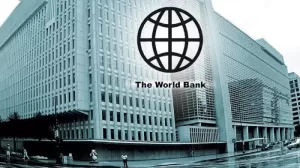The poor economic situation of some developing countries in Africa, has necessitated them appealing to World Bank and the International Monetary Fund for debt relief.
These countries are hoping for a cancellation of their debts by the world organisations.

Nigeria and other developing nations are amplifying their request for debt relief within the G-24.
The G-24, is an assembly of developing economies.
At the ongoing meeting of the International Monetary Fund (IMF) and World Bank in Marrakech, Morocco, the G-24, of which Nigeria is a member, presented a series of appeals.
The G-24 members voiced their apprehension regarding the escalating and substantial levels of public debt faced by numerous developing countries.
Have You Read: See What IMF Says Will Attract Investors To Nigeria
They emphasised that these nations were grappling with unsustainable debt, making it challenging for them to meet their repayment obligations.
Reasons For Debt Relief Request
The members of the G-24 while acknowledging the G-20 Common Framework, which is a debt relief initiative by the Group of Twenty (G-20) countries, noted that some of the poorest and most vulnerable countries were not benefiting from this debt relief programme.
Therefore, they called for a durable debt resolution specifically designed to address the debt problems of those excluded countries.
At the same time, they demanded for a more comprehensive and sustainable solution to alleviate the burden of debt for these countries and enable their economic growth and development.
Nigeria’s Minister of Finance and Coordinating Minister for the Economy, Wale Edun, at the Africa Group 1 Constituency Meeting on the sidelines of the IMF/World Bank meeting said: “Our member statement urges an efficient debt resolution framework to support post-pandemic recovery and we indeed welcome Zambia’s debt restructuring agreement and call for swift resolution mechanisms for Ethiopia and Malawi”.
The G-24 members also called for more concessional lending, especially for investments in global public goods and sustainable development such as affordable water and energy.

